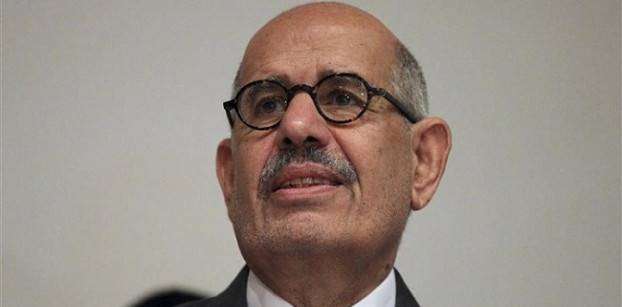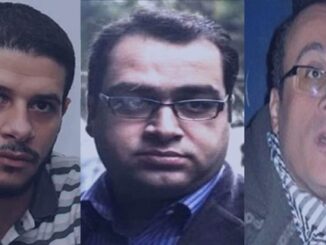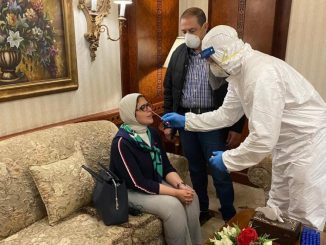
Mohamed ElBaradei -Egypt’s former Vice-President for Foreign Affairs- has published a statement denouncing media claims and clarifying his stance on the June 30 protests and developments in events after the 2013 military coup, according to Aswat Masriya.
Three years after Rabaa dispersal massacre, Mohamed ElBaradei came out of his silence and recounted in 13 points the details of the events that occurred between July 14, 2013 when he assumed the post of Vice President for Foreign Affairs after the military coup and when he resigned in light of the violent dispersal of the Rabaa al-Adaweya sit-in August 14, 2013.
In June 2013, the Egyptian armed forces led a military coup against Egypt’s first democratically elected president Mohamed Morsi taking advantage to mass protests organized by Tamarod -a suspicious movement which was discovered latter that it had links with the Egyptian army and security forces.
Moheb Doss, one of Tamarod’s co-founders and main organizers, says the group’s leaders received communications from the Army and other state institutions who had turned on Morsi in two ways, according to the Daily Beast.
In the same context, another Tamarod organizer recounts taking part in a meeting with colleagues and former military officers in the basement of a popular Cairo restaurant in the week before the protests. The former officers, he says, “were the bridge between us and the Army during the preparations for June 30.”
ElBaradei was assigned to take part in the coalition responsible for drafting what came to be known as the “roadmap,” consisting of several steps to complete the democratic transition phase including parliamentary and presidential elections, drafting a new constitution and national reconciliation.
In his statement, ElBaradei recalled a critical testimony that he witnessed in the first days of the military coup -one of them was the abduction of Egypt’s elected president.
ElBaradei said that the Armed Forces called upon the coalition composed of various political figures to meet in an attempt to address the “volatile situation on the ground.” He continued saying, “As the meeting began, I was surprised to know that the president had already been detained earlier that morning – without any prior knowledge by the coalition.”
ElBaradei said, “This effectively ruled out the option of holding a referendum for early presidential elections.”
He added, “The priority, for me, at the time became working to try to avoid civil strife and to keep the peace through a roadmap.”
However, things took a different path when the peaceful pro-Morsi supporters organized sit-ins in Rabaa al-Adaweya and Nahda Squares, but they were violently dispersed by security forces on August 14.
ElBaradei said that he opposed the dispersal, arguing that there were “almost agreed upon political solutions” on the table that could have served as an alternative to a “spiral of violence and division.”
Later, he resigned from his post, prompting attacks launched by media figures against the decision.
ElBaradei laments the media attacks that persist to this day, mainly focusing on the timing of the dispersal and ElBaradei’s role in delaying the move, while maintaining that the dispersal could not have happened “peacefully.”
ElBaradei testimony about what was happening behind the scenes on 30 June 2013 explicitly accuse the military of abducting President Mohamed Morsi as well as using excessive violence against peaceful protesters despite the presence of other means.
Egyptian politicians commented on ElBaradei statement that despite being late but it denounced the violent military coup in 2013.
Wael Kandil, a journalist and writer, commented on his twitter account saying,” ElBaradei’s testimony puts al-Sisi and his gang under the authority of the International Criminal Court if there was real justice in that world.”
On the other hand, Gamal Eid-the director of the Arabic network for human rights,wandered about the delay of ElBaradei’s testimony for three years and asked, “Why didn’t you publish this testimony once you left office and what else did you do instead of posting tweets to face dictatorship?” He added, “We respect you but you made a mistake.”
Eid continued, “a Testimony: when al-Sisi asked the people to authorize him, I was at al-Ettehadiya with ElBaradei and others, asking for a delegation was a surprise and we felt that Adly Mansour was only a picture and the military rule is coming.”
He added,” My friend, your testimony came late, it is a fatal mistake, on the contrary publishing it on its time would have been more beneficial as it would help the people to identify their positions, the man is honest but he disappointed many people.



